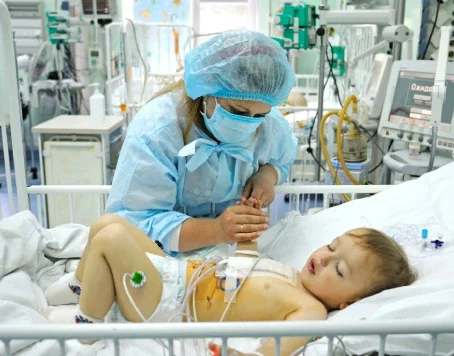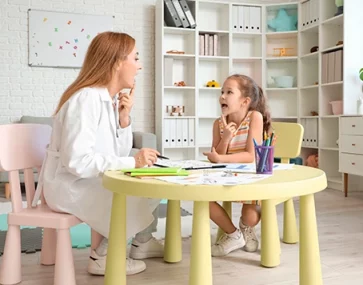Pediatric intensive therapy is a focused therapy approach which is designed to help children with developmental delays or disabilities to make improvements and lead a more meaningful life. As the name suggests, this therapy is intensive meaning it combines multiple sessions in a shorter time frame. So, kids who will undergo intensive therapy, will engage in consistent, targeted exercises or activities suggested by the therapists.
As a parent, you will also be involved in the therapy to even support your kid at home and other settings. Intensive therapy contains physical, occupational, and sometimes speech therapies and it targets motor skills, coordination, and cognitive growth.
Parents can expect a compassionate, supportive environment where their children will be guided. Therapists work closely with families. Parents will get regular feedback to stay informed and feel encouraged to support their child’s growth outside of sessions.
How Can Intensive Therapy Support the Developmental Goals of Children?
The therapists carefully assess the condition of the kid prior to designing the therapy plan. They check the areas of improvement, difficulty levels, age, medical history – all these into considerations.
Check out the benefits of intensive therapy
Repetition is key to learning, especially for children. Intensive therapy focuses on practicing the same tasks until they become familiar and natural to the child. This repeated practice builds a certain skill to make it easier for them to recall and use these abilities when needed.
Every milestone, no matter how small or big, can boost the confidence of a child. In intensive therapy, the regular achievements that children experience – whether it’s learning to walk more independently or improving their speech. This steady build-up of small successes encourages the child to put in more effort and it fosters a positive self-image.
Intensive therapy often involves parents directly to make them aware of the tools and strategies they need to support their child’s growth at home. Therapists work closely with families. They guide parents on specific exercises and methods to reinforce therapy goals. Parents learn to integrate therapeutic practices into daily routines. As a result, there is a consistent environment to accelerate the development of the child.
Many intensive therapy programs incorporate group sessions. Here, children can interact with peers and practice both social and physical skills together. Many children struggle with social interaction, and this group session provides a safe and supportive environment to them. It helps build friendships and engage with others. As children develop these social skills, they understand the concept of cooperation, sharing, and empathy – all these are essential for their overall growth and emotional well-being.
How Long Does Intensive Therapy May Last?
Pediatric Intensive therapyprograms can range from a few weeks to a few months. However, it depends on the child’s specific needs. Usually intensive therapy is conducted for 3 consecutive weeks with 5 daily sessions in each week. And, each session may last for 2-6 hours. The therapists consider the child’s strengths, goals, age and how they respond to therapy and determine the frequency and duration.
Finishing Up
Hope AMC is a prestigious pediatric rehabilitation center in Dubai. This center has the world’s finest therapists and doctors who have years of experience in treating children with special needs.
Don’t wait! Bring your child to our clinic. First, book an appointment to talk to our board-certified therapist about the condition, challenges or unique developmental needs of your child.
Our clinic remains open every day of the week! Visit now!



